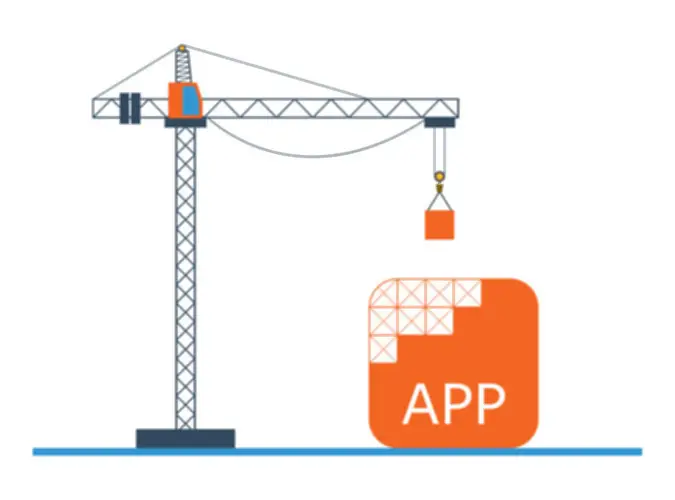A higher-order operate is one which takes capabilities as parameters or returns a function. There are some things value understanding about these in relation to Kotlin. In Java, higher-order functions are made possible via Callables, and lambdas had been launched with Java 8. CPU-intensive work and network I/O are long-running operations. The calling thread is blocked until the whole operation completes.

Thrilling Java Tasks For Budding Programmers

With these advantages, Kotlin is great for tackling complicated tasks efficiently. As probably the greatest Operational Intelligence programming languages, Java remains a reliable choice for enterprise functions. Recognized for its “write once, run anywhere” method, it is fitted to large-scale web functions and enterprise techniques.
What Is The Primary Advantage Of Kotlin Over Java?
Variables in Kotlin have to be explicitly marked as nullable (using the ? operator) if they can kotlin app development accept null values, bettering code reliability. In distinction, Java treats all kinds as nullable by default, which may lead to null pointer exceptions if correct null checks aren’t applied. One Other vital difference between Java and Kotlin is their assist for useful programming. Whereas Java has added some help for practical programming in recent years with the release of Java 8, Kotlin was designed from the bottom as much as assist functional programming concepts.
Inline functions in Kotlin can provide performance optimizations in sure situations. However, when selecting between Kotlin and Java, total performance shouldn’t be the primary deciding issue. This section discusses the similarities and variations between Kotlin and Java. Ans-You can begin with Kotlin without having any data of Java.
Kotlin additionally supplies different syntactic sugar, similar to information lessons, extension capabilities, good casts, and operator overloading, which makes code extra expressive and simpler to maintain. In abstract, Kotlin and Java are both superior programming languages which have some vital variations. Java is a widely used, object-oriented programming language that has been a cornerstone of software development for many years. Developed by Solar Microsystems (now owned by Oracle), Java is thought for its platform independence, sturdy community assist, and in depth ecosystem.
Introduction To Java And Kotlin
Kotlin is your most appropriate option for beginning a model new project, especially as an Android Developer. Java is the better selection if you’re working on an existing project that’s been written in Java. Kotlin can additionally be a preferred selection for creating microservices, as properly as knowledge science purposes. Autocode, developed in 1952 by Alick Glennie, was the primary compiled programming language, which means it could probably be immediately translated into machine code.
Whether Or Not you work inside the Android ecosystem or in broader software growth, you’ve likely debated between the trendy, dynamic Kotlin and the years-proven Java. Both provide unique advantages, catering to different varieties of developers and tasks. In this post, we’ll dive deep into their options, compare their strengths, and assist you to determine which language most carefully fits your goals. Kotlin is a contemporary programming language developed by JetBrains. It was designed to be fully interoperable with Java, allowing builders to use existing Java libraries and frameworks seamlessly.

Fast utility growth model is a flexible and fast-paced software program development approach that uses prototyping, user feedback, and iterative development to construct functions rapidly. It’s best for tasks with altering necessities and has confirmed effective in finance, healthcare, and retail industries. In conclusion, the decision between Java and Kotlin is decided by your comfort stage and profession targets. While Kotlin offers trendy options and capabilities for Android growth, Java stays a solid alternative with strong group support. It’s essential to stay up to date with the latest technologies and adapt to the evolving landscape of expertise.
- While its predecessor, Java, is restricted to object-oriented programming, Kotlin combines that with options of practical programming as nicely.
- Kotlin boasts a syntax that skips semicolons and makes use of smart casts.
- In fact, Java’s syntax shares some similarities with C and C++ but provides fewer lower-level services.
- Google has shown exceptional help for Kotlin, which has enabled its widespread adoption for Android growth.
As An Alternative, it has a declaration-site variance and kind projections, which serve as an alternative. Thus, Kotlin would not require to catch or declare exceptions. Now that we’ve a bit of context, you would possibly wonder how Kotlin’s growth impacts Java. To perceive each side of the debates, let’s first take an in depth take a glance at their variations. Each Kotlin and Java compile to bytecode that runs on the JVM, which suggests they’ve comparable performance traits. Right Here is one other example showing the distinction between the verbose syntax of Java and a more concise Kotlin syntax.
In The End, it is dependent upon what every developer prioritizes essentially the most. The singleton sample, a design choice that restricts a category to having only one instance, is a staple in software growth. In Java, the normal implementation usually entails verbose code and potential pitfalls. Kotlin elegantly addresses this with a concise and simple approach that ensures singletons aren’t simply environment friendly but in addition easily accessible. While Kotlin has turn out to be the preferred language for Android growth, it hasn’t fully replaced Java.
This article covers what’s new, making it the right choice for internet growth. Need to construct a mobile app however not sure what tech stack to use? Examine out our blog submit for a breakdown of your choices and tips for selecting the most effective one for your project. Study how to choose the proper tech stack on your SaaS product. Explore key elements for scalability, efficiency, and long-term success.
Nevertheless, there is a higher way of managing intensive operations in Kotlin, often recognized as coroutines. Coroutines are stackless, which suggests they demand lower reminiscence utilization as compared to threads. Evaluating a Java class with an equivalent Kotlin class demonstrates the conciseness of Kotlin code. A Kotlin class necessitates much less code than a Java class does for the same operation. One main difference between Java and Kotlin is that the latter has no provision for checked exceptions. Subsequently, there isn’t a need to catch or declare any exceptions.
As talked about, Java is a general-purpose language, and together with JavaScript and Python, it’s among the hottest languages on the earth. Kotlin just isn’t yet preventing for that podium, nevertheless it has been a tricky competitor in relation to Android improvement. Each Java and Kotlin have differences while using syntaxes, this could be denoted by a semicolon that’s present in java whereas Kotlin doesn’t require to have any semicolons in a statement. Ultimately, the selection between Java and Kotlin will depend upon the particular needs of your application and your development group’s preferences and skills.
Its strategy to such fields divulges the illustration of the issue https://www.globalcloudteam.com/ to the callers, Kotlin doesn’t have non-personal fields. So, the job of discovering an individual experienced in Kotlin is an enormous challenge. Android required calculative and to-the-point to indicate new concepts to execute them in Kotlin’s trendy language. Irrespective of the variations between Java and Kotlin, they are fully interoperable. This means it’s possible to call Java code from Kotlin and vice-versa. It is required to specify the dependency utilizing the kotlin-kapt plugin.